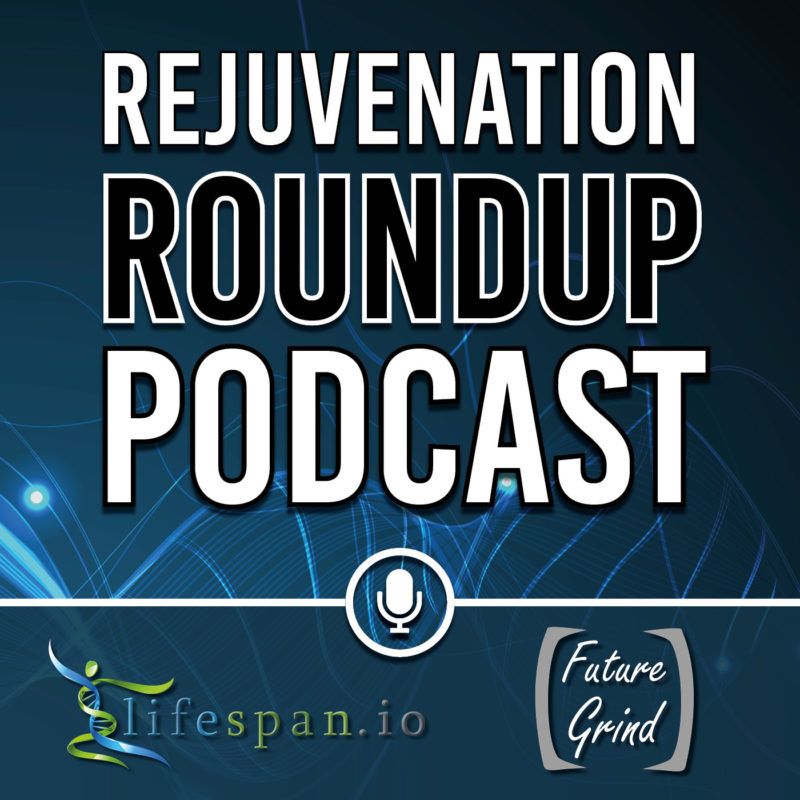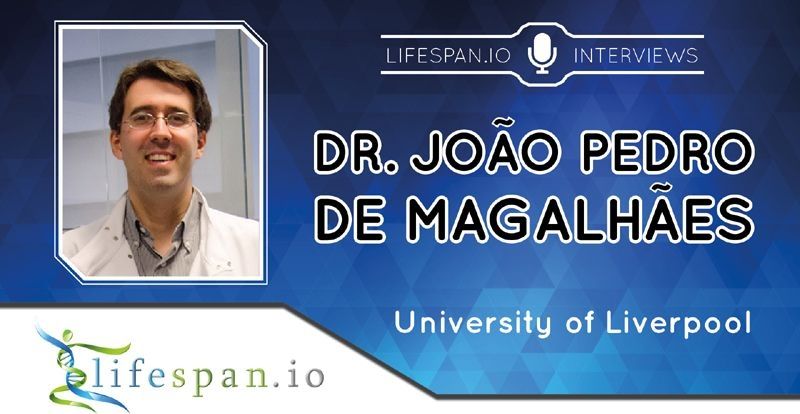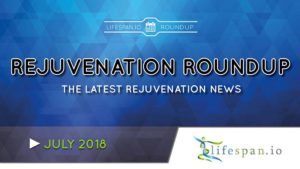We’re excited to announce that we have partnered with Future Grind to produce the Rejuvenation Roundup Podcast, hosted by Ryan O’Shea! Explore the latest in life extension and anti-aging science with a dive into a month’s worth of scientific insights and new breakthroughs. More at lifespan.io/roundup
Category: life extension – Page 584
Aubrey De Grey Discusses Indefinite Longevity
Fantastic Video Set of Aubrey De Grey discussing Indefinite Longevity.
This video is a compilation of the biogerontologist Aubrey de Grey. He has been pushing the scientific frontier of indefinite longevity for the last few decades and predicts that science and technology will be advanced enough 20 years from now so that we can all achieve longevity escape velocity.
Video One:

Time Is Precious, So Let’s Enjoy More of It
Life extension would give us more time to enjoy; why not?
At times, meeting people feels like going to the theater. Conversations tend to revolve around the same topics and can sound so cliché that they seem scripted. Of course, it depends on the people—close friends tend to be far more genuine than that—but if you pay attention during a conversation, a certain topic will pop up several times: aging.
Depending on the age of the people involved, the way they discuss aging will be different. Teenagers probably won’t even touch the subject; it generally starts creeping up in conversations once working life has begun or is about to begin. At this stage, chronological and biological aging are mostly conflated; responsibilities, more demanding schedules, and abandoning student life are all seen as hallmarks of growing older, when, in fact, they are only signs of growing up and are not absolute.
Still, it is largely true that we become more busy as we get older, independent of biological aging. This is, in fact, a common complaint that subtly slips into most “grown-up conversations”; this is especially true in the case of parents, whose free time is understandably even more curtailed. Wouldn’t we all like to have more time?

The Rejuvenation Roundup
We have now launched the Rejuvenation Roundup Podcast, a monthly podcast accompanying our regular Rejuvenation Roundup digest. Check out the first episode of this new show hosted by Ryan O’Shea from Future Grind.
Brought to you by Nicola Bagalà, the Rejuvenation Roundup is our monthly digest, which takes a look at the big news stories involving the industry and helps keep you informed of current developments in the aging research field. Hosted by Ryan O’Shea of the Future Grind podcast, the Rejuvenation Roundup podcast is a regular podcast that complements the monthly written Roundup articles that we publish here on the blog. The podcast aims not to replace the regular written Roundup articles but to offer a deeper dive into some of the key stories, and it includes quotes and interviews from industry leaders. We suggest enjoying both written and podcast versions every month!
Ryan covers a variety of topics from a busy July in the rejuvenation biotechnology field, including the placement of “ageing-related” into the 11th revision of WHO’s International Classification of Diseases (ICD-11) along with insights from industry leaders about developing news in the field. You can find the accompanying July Rejuvenation Roundup article here, where Nicola brings you more industry news not covered in the podcast.

Deep Knowledge Analytics announces the publication of a new analytical report titled Longevity Industry in UK Landscape Overview
845 pages in length, the report aims to outline the history, present state and future of the Longevity Industry in the United Kingdom, profiling hundreds of companies, investors, and trends, and offering guidance on the most optimal ways in which UK longevity industry stakeholders, as well as government officials, can work to strengthen the industry, and allow it to reach its full potential as a global longevity science and preventive medicine hub. The report uses comprehensive infographics to distill the report’s data and conclusions into easily understandable portions, and interested readers can get a quick understanding of the report’s main findings and conclusions in its 10-page executive summary.
This special regional case study follows-up on the content and general outline of the Longevity Industry made by our consortium in the previous Longevity Industry Landscape Overviews, including Volume I “The Science of Longevity” (750 pages), and Volume II “The Business of Longevity” (650 pages), published earlier this year.
These ongoing analytical reports are part of a collaborative project by The Global Longevity Consortium, consisting of the Biogerontology Research Foundation, Deep Knowledge Analytics, Aging Analytics Agency and the Longevity. International platform.

Rejuvenation Roundup July 2018
The July 2018 Rejuvenation Roundup is out!
Another month, another series of great news items for healthy life extension enthusiasts! It’s hard to believe that July is already behind us and, with it, the first Lifespan.io conference in New York City; let’s take a look back and review the past month before diving into the next one.
The Rejuvenation Roundup podcast
Starting this month, the Rejuvenation Roundup is available as a podcast! For this great initiative, we owe our thanks to Ryan O’Shea, the man behind Future Grind—a podcast discussing all things future. Our Vice President Oliver Medvedik has already had the honor to be featured in a previous podcast about life extension, but all the topics that Ryan deals with are absolutely exciting, so we highly recommend checking out the other episodes as well!

New video from Undoing Aging 2018: Nichola Conlon, Founder and CEO of Nuchido presenting: Systems pharmacology interventions in aging
https://www.undoing-aging.org/videos/nichola-conlon-presenti…aging-2018
Btw: the facebook event page for Undoing Aging 2019 is already up fb.com/events/2044104465916196/

Life Extension Is Not Selfish
A discussion about why life extension isn’t selfish.
The topic of life extension is much more debated these days than before. As a result, more people who are not in the field talk about it, and they don’t always do so in praising terms. Articles written by outsiders tend to be conservative at best and fear-mongering at worst, mainly focusing on the potential downsides of life-extending technologies without paying much attention, if any, to the benefits, as if there weren’t any to begin with.
One accusation that is often thrown at life extensionists is that they would be selfish for wanting to extend their lives. It is all too easy to say that all that life extensionists think about is their own benefit while disregarding the common good, but it’s not too difficult to see how this is entirely wrong.
Life extension is about eliminating the suffering caused by the diseases of old age, and at this stage, it is not clear who will actually make it to a world where these diseases are under control; many of today’s rejuvenation advocates might simply die before the world they are trying to build will come into being. I am not trying to say that all rejuvenation advocates do what they do only for others’ sake, because that would not be true, but the opposite claim—that all advocates of life extension are such only for exquisitely selfish reasons—is quite a stretch, to the point of slander. It is no different from claiming that all women’s rights advocates who happen to be women only care about this cause for their own benefit and not at all for their fellow women, and it is equally outrageous.

An Interview With Dr. João Pedro de Magalhães
A new interview on LEAF with biogerontologist Dr. João Pedro de Magalhães.
Today, we have an interview with Dr. João Pedro de Magalhães, the biogerontologist who created and runs senescence.info. In the unlikely event that his name is new to you, we had another interview with him last year, which you can check out here.
How do you think we age; are we programmed to die, do we wear out, or is the truth a mixture of both?
I don’t think we wear out. Humans and complex animals are made of cells and molecules that, by and large, have some turnover; we can replace most of our components, so I don’t think it’s correct to see aging as wearing out, at least not in complex animals like humans. (Please see here.) That said, I do think that some forms of cumulative damage contribute to the aging process, such as DNA damage. I also think that there are programmatic aspects to aging. That is, I think that genetic programs coordinating some aspects of growth and development persist into adulthood and become detrimental as forms of antagonistic pleiotropy. It is probably a combination of molecular damage and the inadvertent actions of genetic programs that causes aging.
In a Future of Mind Uploading, Who Will Own the Data That is You?
The year is 2050 and researchers have developed an advanced method of replacing 99% of your brain’s functions for digital software/hardware. The process is slow to ensure individuals aren’t simply making copies of themselves. But in return, “digital immortality” has been achieved.
In a future of mind-uploaded “immortals,” will we achieve unlimited freedom or will we simply become slaves to a private entity which owns the data that makes up our own digital minds?
